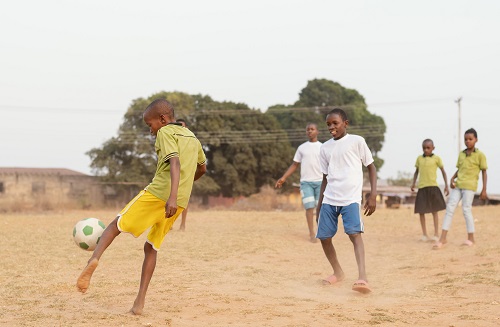
Discover the dynamic and exciting world of South African soccer!
From its historical evolution to its thriving national teams, the Premier Soccer League and grassroots football, soccer in South Africa is a vibrant and integral part of the country's culture.
Women's football has also seen a surge in recent years, with initiatives to promote gender equality in the sport.
Join us as we explore the fascinating overview of soccer in South Africa.
Historical Evolution
Tracing its roots back to British colonialism, South African soccer has undergone a significant transformation over the years.
During the apartheid era, the game was predominantly played by white civilians and had separate soccer associations for each race.
After the demolition of apartheid, a multi-racial football association was formed and South Africa played its first international contest in three decades in 1992.
The national soccer teams, Bafana Bafana and Bayana Bayana, have seen success on the international stage, winning the African Nations Cup in 1996 and qualifying for the FIFA Women's World Cup in 2019.
The 2010 FIFA World Cup, hosted in South Africa, left behind world-class stadiums and an immense boost in tourism.
Football in South Africa is now a powerful economic, cultural, and political force.
National Team
Building on its rich history, South Africa has two national soccer teams that have achieved success on the international stage. Bafana Bafana, the men's team, won the African Cup of Nations in 1996 and qualified for the FIFA World Cup in 1998.
Bayana Bayana, the women's team, made its debut at the 2019 FIFA Women's World Cup. Both teams have faced many challenges, but have persevered and earned global recognition. Bafana Bafana is widely considered to be one of the strongest teams in Africa, while Bayana Bayana has served as an inspiration for aspiring female footballers.
The success of South African soccer teams at the international level has been a source of pride for the country.
Premier Soccer League
You can trace the roots of the Premier Soccer League (PSL) in South Africa back to the late 19th century. It's the top-level professional soccer league in the country, and features 18 teams from all over the country.
PSL teams are known for their passionate fanbases and vibrant stadium atmosphere. The teams are supported financially by corporate sponsors and salaries for PSL players are some of the highest in Africa.
The league is also well-known for its talent development, and has produced some of the best players in the country. Also, the interest of soccer betting in Premier Soccer League is rising in the last years. If you are interested in soccer betting, make sure to check websites that provides soccer data and statistics, such as https://tempotips.com/.
The PSL has been instrumental in the growth of soccer in South Africa and is set to remain a major force in the country's sporting landscape.
Grassroots Football
Building on the growth of the Premier Soccer League (PSL), grassroots football in South Africa is an essential part of its soccer landscape. The role of community participation is key to developing the sport, with schools, academies and local clubs providing opportunities to nurture talent.
However, challenges remain in identifying and developing talent in areas with limited resources. Initiatives such as the Football for Hope program have been successful in promoting youth football and gender equality, while creating a platform for the development of the sport.
With increased access to facilities and support, the grassroots football scene in South Africa is sure to continue to grow.
Women's Football
Following the growth of grassroots football in South Africa, women's football has seen an emergence of increased participation and recognition. In recent years, many initiatives have been taken to promote gender equality within the sport. Women's domestic leagues have been established in various cities and towns, and the national women's team, known as Bayana Bayana, has achieved notable successes.
Despite these strides, there are still many challenges in the development of women's football in South Africa. These include a lack of resources, limited access to training, and a lack of visibility in the nation's soccer culture.
Nevertheless, the progress made in recent years is inspiring and suggests that South African women's football is on the rise.
Conclusion
South African soccer has a long and rich history, as well as a bright future. The national teams, Bafana Bafana and Bayana Bayana, have achieved success in international competitions.
The Premier Soccer League is the country's most popular soccer league. Grassroots football and women's football are also increasing in popularity.
Soccer in South Africa is a sport that's beloved by many and will continue to be a source of pride for many in the years to come.